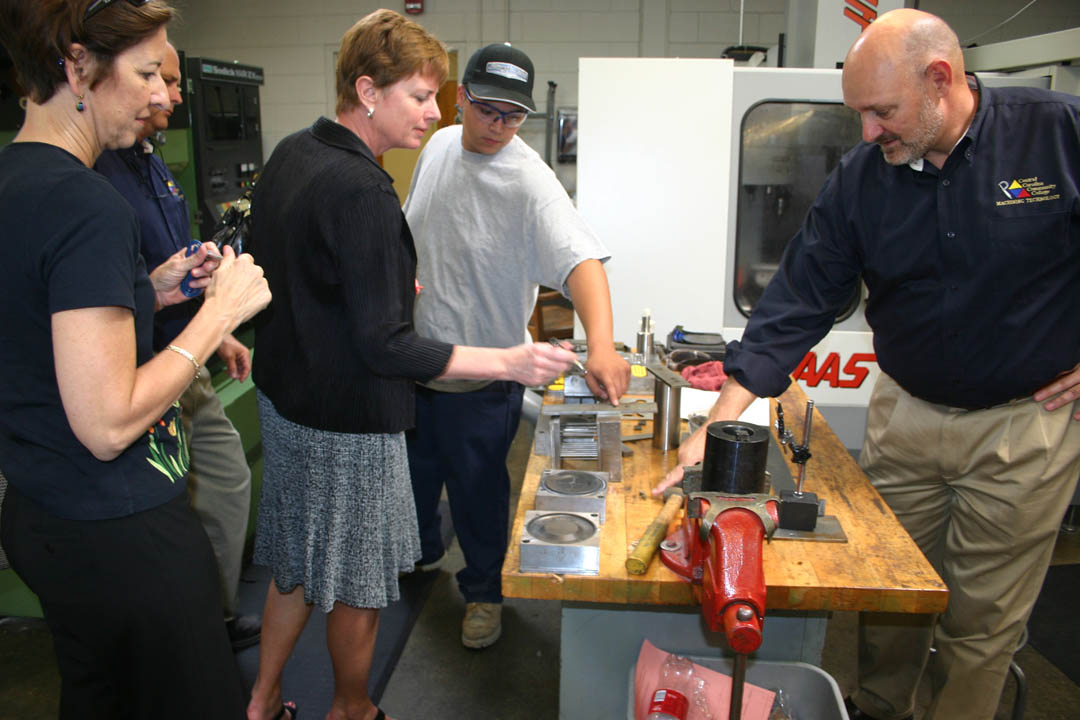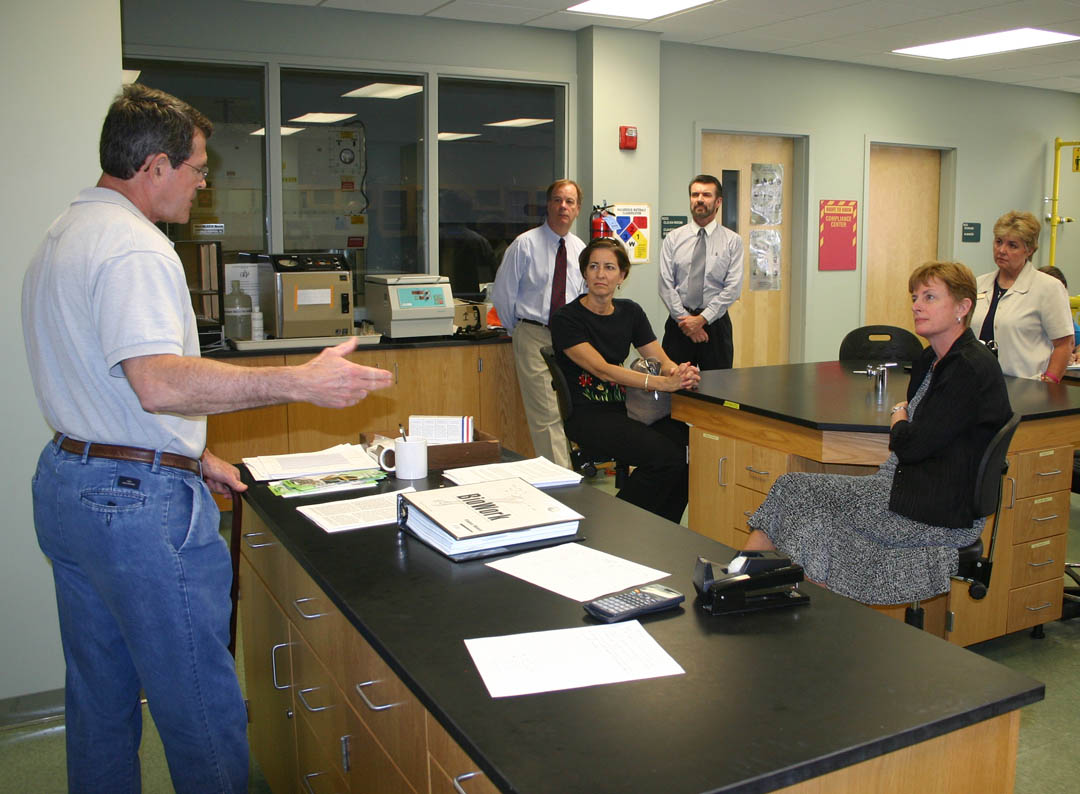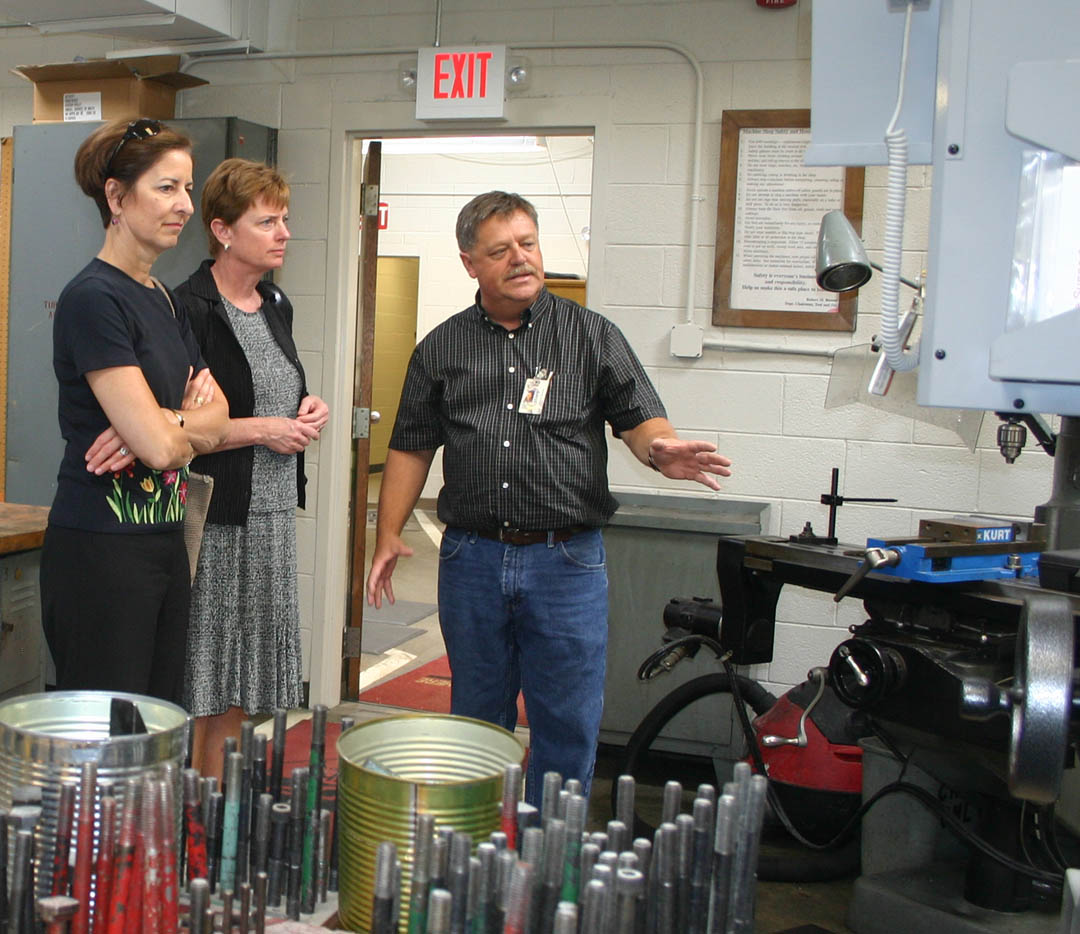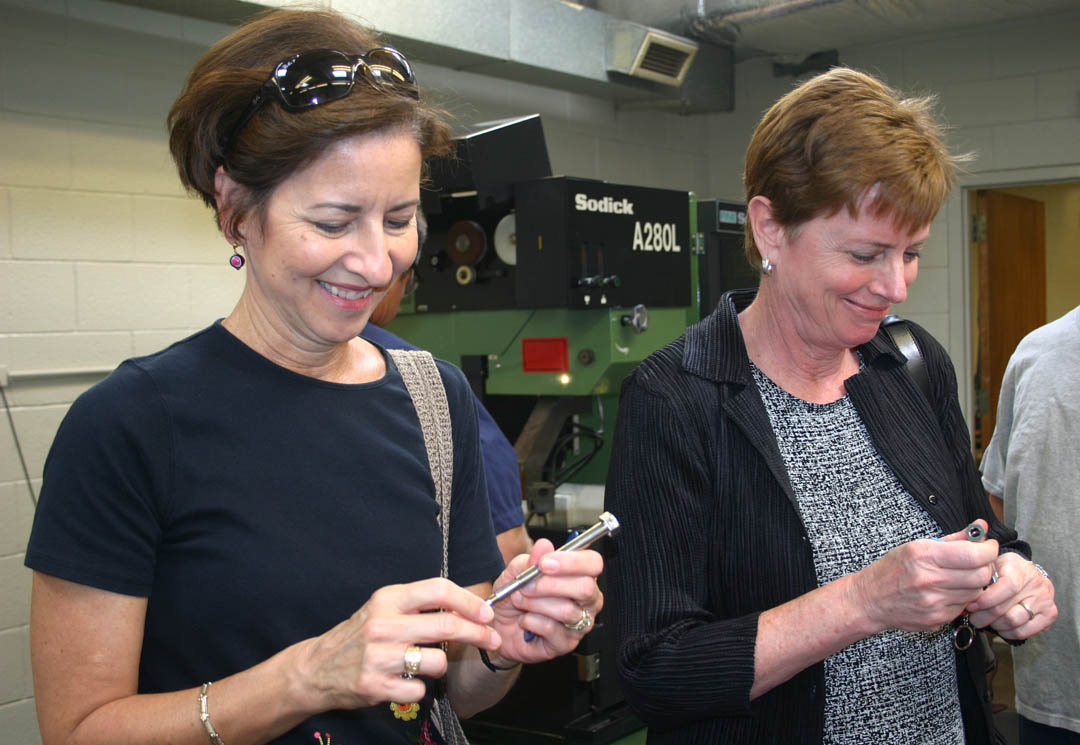SANFORD - Members of the Fort Bragg/Pope Air Force Base BRAC (Base Realignment and Closure) Regional Task Force visited Central Carolina Community College's Lee County Campus July 1 to learn more about the college.
BRAC 2005 is the comprehensive U.S. Department of Defense program to close bases around the United States and consolidate personnel and missions at those remaining. Fort Bragg will expand significantly as a result, and the RTF, a partnership of counties and communities surrounding the base, is dealing with the resulting challenges.
Dr. Jane Smith, RTF program manager for education; Tim Moore, program manager for workforce development; and Renee Lane, communications and outreach director, received information from college administrators and faculty on two major concerns:
- What training does and could the college offer to meet the workforce needs of the industries and companies moving into the area as a result of BRAC?
- What educational opportunities and workforce training does and could it offer the growing civilian population and military personnel, both active duty and those transitioning back to civilian life and looking for new careers?
"Central Carolina Community College already serves the educational needs of many, both civilian and military, who are connected to Fort Bragg and Pope Air Force Base," said college President Bud Marchant. "We appreciate the opportunity to continue to be active partners with the BRAC Regional Task Force in expanding opportunities for workforce training and educational enrichment to make this area one of the best in which to live and work."
Under BRAC, Fort McPherson, Ga., is being closed and the U.S. Army's Forces Command and Reserve Command are in the process of moving to Forth Bragg. The move is to be completed by 2011, when Fort Bragg will, by population, be the largest Army base in the nation, with more than 80,000 soldiers and personnel.
According to Paul Dordal, executive director of the BRAC RTF, more than 19,000 jobs will be created by 2013 as a result of additional military investment in the area. Also by 2013, the civilian population of the 11-county area around Fort Bragg and Pope Air Force Base is expected to increase by 40,000.
To deal with the challenges of implementing BRAC locally, North Carolina formed the BRAC RTF, a partnership of the 11 county and 73 municipal governments around the bases. The Task Force serves as the region's liaison between the military, the counties and communities, educational institutions, and the state and federal agencies charged with assisting the counties and communities as they adjust to the BRAC impact. It is working with issues such as housing, education, jobs, public safety, workforce training, protecting the environment, transportation, and quality of life.
Central Carolina Community College's focus is on providing educational opportunities for civilians and base-related personnel, particularly in Harnett and Lee counties, two of the 11 in the designated BRAC area. An expansion of workforce training is critical as industries and businesses look for skilled workers. Individuals are also interested in programs to put them on track for four-year degrees, as well as enrichment classes for life-long learning.
An RTF team had previously visited the college's Harnett Campus to see such programs as laser and photonics and hear about coming programs, including a planned orthotics/prosthetics program that could train technicians to assist in the rehabilitation of soldiers who have lost limbs in war.
At the Lee Campus, Smith, Moore and Lane visited the veterinary medical technology; motorcycle mechanics; machining, tool and die; and bioprocess programs. They heard presentations on the college's university transfer programs; telecommunications; green programs in biofuels, agriculture, construction and weatherization, and ecotourism; as well as other offerings.
"As we see programs here that are important to soldiers and their families, they need to know about them," said Lane.
The BRAC RTF has a Regional Agricultural Sustainability Program, which it established with a $200,000 grant from the N.C. Tobacco Trust Fund Commission. The goal is to link the agricultural community in southeastern North Carolina to opportunities created by the growth around the bases. For this reason, the BRAC visitors were particularly impressed with the college's green programs. Most of the programs are now offered at the college's Chatham County Campus, in Pittsboro, but expansion is beginning, with the college's West Harnett Center currently offering a sustainable farming program.
"Central Carolina offers a number of unique programs supporting agricultural sustainability, ecotourism, green building and renewable energy, among others," said Smith. "These types of programs are essential in building the region's workforce of tomorrow."
Stelfanie Williams, the college's vice president of Economic and Community Development, spoke of the college's ability to provide short-term and rapid-response training, depending on industry needs.
"BRAC brings a lot of opportunities," she said, "and we want to be poised to meet these immediate needs."
Dr. Lisa Chapman, the college's vice president for Academic Affairs, gave an overview of the college's close partnerships with the communities it serves and its continual growth of programs to meet workforce training needs. She said the college would continue this as training needs became apparent for industries and other work opportunities at the bases and in the area.
Other counties in the BRAC RTF are Bladen, Cumberland, Hoke, Montgomery, Moore, Richmond, Robeson, Sampson, and Scotland. For more information on the BRAC RTF, go online to
www.bracrtf.com. For more information about Central Carolina C.C., visit its website,
www.cccc.edu.





